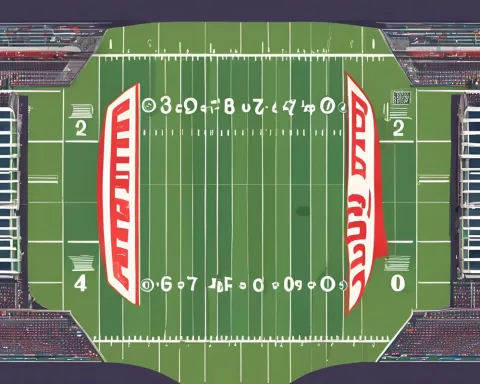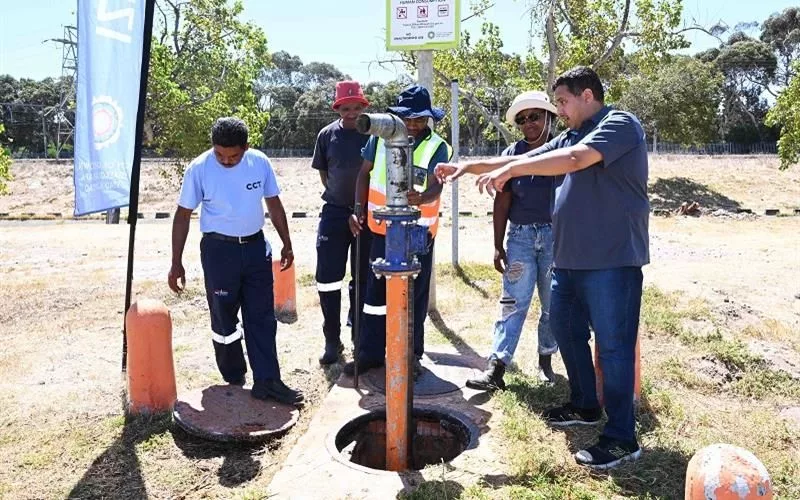The accusations of Jali participating in an “unlawful strike” led to the conflict between South African football club Moroka Swallows and midfielder Andile Jali. Jali turned to the PSL DRC for justice but lost his case against Swallows. The situation highlights the complex and unpredictable nature of football’s off-field theatrics and the need for open dialogue and negotiation in conflict resolution within clubs.
Unpacking the Conflict Between Moroka Swallows and Andile Jali
What caused the conflict between Moroka Swallows and their midfielder Andile Jali? Jali faced expulsion over accusations of participating in an “unlawful strike”. He turned to the PSL DRC for justice but lost his case against Swallows. According to the club’s lawyer, Leruma Thobejane, Jali’s decision to contest his termination at the DRC was a misjudged plan of action, and negotiation might have served as an alternative approach to settling the sensitive situation.
The Whirlwind Begins
Football isn’t just a sport that unfolds on the pitch, it’s often a stage for unexpected off-field melodramas. One such drama recently played out between the South African football club Moroka Swallows and their midfielder Andile Jali, a former Mamelodi Sundowns player.
The narrative of the drama kicked off with Jali, a 33-year-old once-prominent star of Mamelodi Sundowns and later Orlando Pirates, who found himself embroiled in a tempest. Finding his footballing home with Moroka Swallows, he soon faced expulsion due to accusations of participation in an ‘unlawful strike’ in December.
Navigating the Legal Tides
In a bid for justice, Jali turned to the Premier Soccer League Dispute Resolution Chamber (PSL DRC) in an attempt to regain his role at the club. However, fate did not side with the former Sundowns player, and his case against Swallows ended in defeat.
But what steered Jali into these stormy waters? The root cause was a complicated network of disputes and discord between the player and Moroka Swallows. According to Leruma Thobejane, the lawyer for Swallows, the club chose to part ways with Jali following a disciplinary hearing.
Thobejane maintained that their decision to terminate Jali’s contract was not impulsive. He stated, “No player has an automatic entitlement to employment with Moroka Swallows.” In his view, Jali had no assertion of a job with the Swallows, and the club wasn’t bound to extend him a new contract.
A Firm Stance and Tactical Errors
Jali’s move to seek justice from the PSL DRC was met with a resolute response from Thobejane. Asserting, “You can’t coerce someone into hiring you,” he emphasized the club’s firm stance that a player’s stature or past triumphs don’t grant them the authority to determine their employment tenure with the club.
In Thobejane’s perspective, Jali’s decision to contest his termination at the DRC was a misjudged plan of action. He suggested that negotiation might have served as an alternative, more effective approach to settling the sensitive situation. The Swallows’ legal counsel stressed that every player is entitled to negotiate with their employer, a liberty Jali overlooked by opting to immediately appeal to the DRC.
The Larger Picture
Thobejane’s commentary on the case provides a profound insight into the complex dynamics of player-club relations. His words highlight the significance of open dialogue and negotiation in conflict resolution within clubs.
In a broader context, this occurrence also mirrors the harsh facts of professional football. With players’ rights often diametrically opposed to clubs’ interests, the sport becomes a battlefield of clashing demands.
As far as Jali’s case is concerned, his battle with Swallows saw a definitive winner in the first round. The beleaguered club emerged victorious, with Jali losing his case. However, given his past, it’s unlikely that Jali will step down without a fight.
This ongoing saga serves as a stark reminder that football isn’t just about on-field skills. The sport involves navigating legal and club dynamics off the field. For players like Jali, the objective is to overcome these obstacles without losing their passion for the sport.
But the Swallows vs. Jali saga is still an open book. Jali retains the right to appeal, meaning future chapters in this gripping drama remain unwritten. As spectators eagerly anticipate the next move, this saga underscores the complex and unpredictable nature of football’s off-field theatrics.
- What led to the conflict between Moroka Swallows and Andile Jali?
-
Jali faced expulsion over accusations of participating in an “unlawful strike”.
-
What was Jali’s response to his expulsion?
-
Jali turned to the PSL DRC for justice but lost his case against Swallows.
-
Why did Jali lose his case against Swallows?
-
According to the club’s lawyer, Leruma Thobejane, Jali’s decision to contest his termination at the DRC was a misjudged plan of action, and negotiation might have served as an alternative approach to settling the sensitive situation.
-
What did Thobejane emphasize about player-club relations?
-
Thobejane emphasized the significance of open dialogue and negotiation in conflict resolution within clubs.
-
What does the ongoing saga between Swallows and Jali serve as a reminder of?
-
The saga serves as a reminder that football isn’t just about on-field skills. The sport involves navigating legal and club dynamics off the field.
-
Can Jali appeal the decision made by the PSL DRC?
- Yes, Jali retains the right to appeal, meaning future chapters in this gripping drama remain unwritten.












